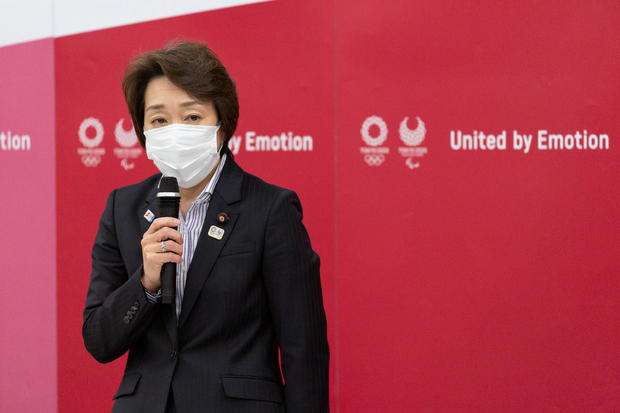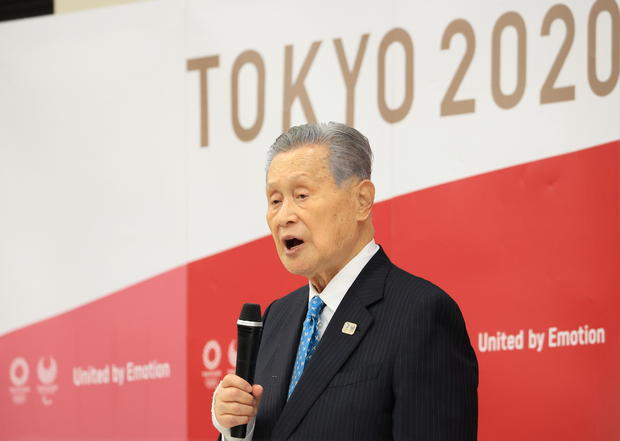Seiko Hashimoto was named president of the Tokyo Olympic organizing committee Thursday after a meeting of its male-dominated executive board. Hashimoto, 56, replaces 83-year-old Yoshiro Mori, a former Japanese prime minister who was forced to resign last week after making sexist comments about women.
Essentially, he said women talk too much.
Hashimoto appeared in seven Olympics – four Winter Olympics and three Summer Olympics. Historian Dr. Bill Mallon says her seven appearances is the most by any “multi-season” athlete in the games.
Hashimoto made even more history on Thursday — women are still rare in boardrooms and positions of political power in Japan. Naming a woman could be a breakthrough for gender equality there. Japan ranks 121st out of 153 countries on the World Economic Forum’s annual gender equality ranking.
She had been serving as the Olympic minister in the cabinet of Prime Minister Yoshihide Suga. She also held a portfolio dealing with gender equality and women’s empowerment.
Hashimoto competed in three Summer Olympics (’88, ’92 and ’96) in cycling and in four Winter Olympics (’84, ’88, ’92 and ’94) in speedskating. She won a bronze medal – her only medal – in 1992 in at 1,500 meters in speedskating.
Hashimoto is tied to the Olympics in many ways. She was born in Hokkaido in northern Japan just five days before the opening ceremony of the 1964 Tokyo Games. Her name, “Seiko,” comes from “seika,” which translates as Olympic flame in English.
According to widely circulated reports in Japan, Hashimoto was reluctant to take the job and was one of three final candidates considered by a selection committee headed by 85-year-old Fujio Mitarai, of the camera company Canon.
The selection committee met for three consecutive days, a rushed appointment with the postponed Olympics scheduled to open in just over five months in the middle of a pandemic and facing myriad problems.
Olympics’ uphill fight in Japan
Polls show about 80% of Japanese want the Olympics canceled or postponed again. There is fear about bringing tens of thousands of athletes and others into Japan, which has controlled the coronavirus better than most countries.
There is also opposition to the soaring costs.
The official cost is $15.4 billion, though several government audits say the price is at least $25 billion, the most expensive Summer Olympics on record, according to a University of Oxford study.
Mori, before stepping down, tried to offer the job last week to 84-year-old Saburo Kawabuchi, a former head of the country’s soccer federation. But reports of the deal, which was made behind closed doors, were widely criticized by social media, on Japanese talk shows and in newspaper reports.
Kawabuchi quickly withdrew from further consideration.
Hashimoto isn’t without her critics. A Japanese magazine in 2014 ran photographs of her embracing figure skater Daisuke Takahashi at a party during the Sochi Olympics, suggesting it was sexual harassment. She later apologized, and Takahashi said he didn’t feel harassed.
Two other former Olympians were also reported to be in the running for Mori’s job: Yasuhiro Yamashita, the president of the Japanese Olympic Committee who won gold in judo in 1984, and Mikako Kotani, who won two bronze medals in synchronized swimming at the 1988 Seoul Olympics.
Kotani is the sports director for the Tokyo Olympic organizing committee. That committee’s leadership is dominated by men, who make up 80% of the executive board.
An Olympic-sized COVID challenge
Japan began to roll out vaccines on Wednesday, a critical move that might boost the Olympics. Japan is several months behind Britain and the United States and other countries.
Widespread vaccination is unlikely to have been reached in Japan when the Olympics open on July 23 with 11,000 athletes, followed by the Paralympics on Aug. 24 with 4,400 athletes. The plan is to keep the athletes in a “bubble” at the Athletes Village, at venues and at training areas. The International Olympic Committee has said it won’t require “participants” to be vaccinated, but is encouraging it.
In addition to the athletes, tens of thousands of officials, media members, sponsors and broadcasters will also have to enter Japan. Many will operate outside the “bubble” in an Olympics being driven by television and the billions the IOC receives from selling broadcast rights.
The first challenge for Hashimoto could be pulling off the torch relay that begins on March 25 in northeastern Japan. It is slated to crisscross the country with about 10,000 runners and end at the opening ceremony in Tokyo.



